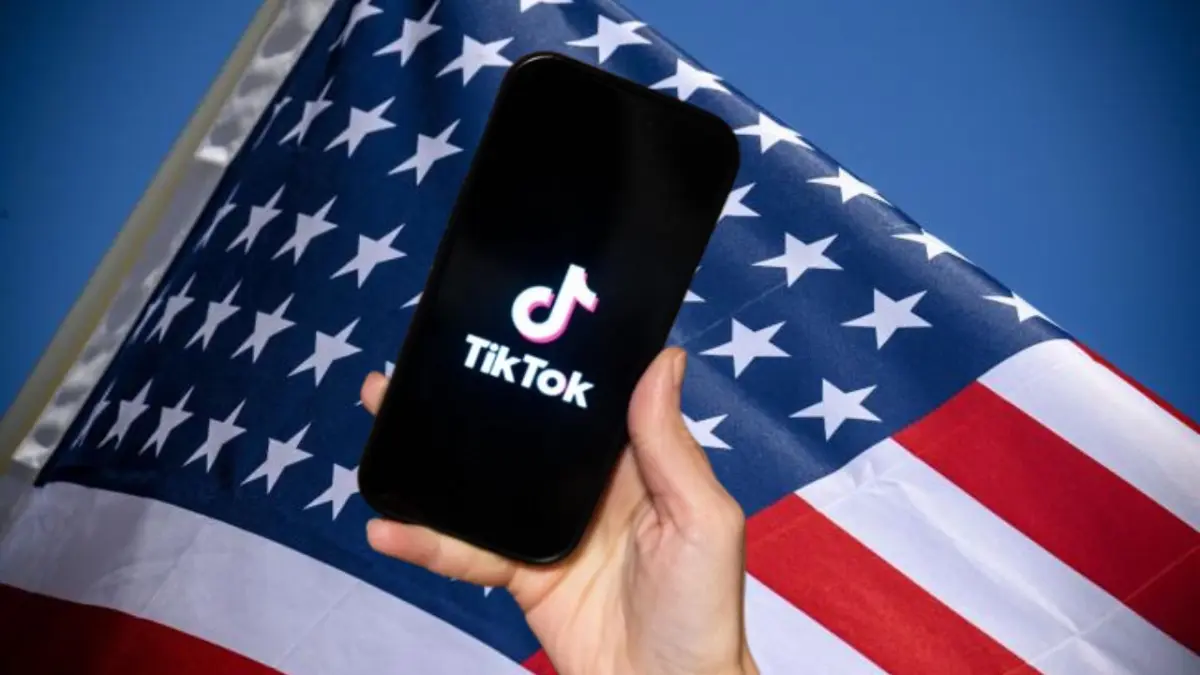
The TikTok platform faces its possible closure this Sunday in the US, where, after its meteoric rise, it has been accused of being controlled by the authorities in Beijing, something denied by its parent company, the Chinese company ByteDance.
If nothing fixes it, TikTok will end its operations in the North American country, as confirmed this Friday due to the lack of guarantees, after the US Supreme Court was inclined to support the law that would veto the platform if it does not separate from ByteDance before the 19th. of January.
(Also read; This is the millionaire sum of money that MrBeast has, the YouTuber who wants to buy TikTok)
Uncertainty before the key day
In the last hours, the outgoing president, Joe Bidenhas decided to leave it in the hands of his successor, the Republican Donald Trumpthe implementation of the veto TikTok.
Biden has indicated that, given the timetable, the responsibility for enforcing the law falls on the next Administration.
Trump, who will take office this Monday, has expressed that he will make a decision about the future of TikTok “in the not too distant future.”
Trump’s change of heart
The president-elect, who tried to veto TikTok In his first term (2017-2021), he asked for the ban to be paralyzed, after promising during the campaign that he would “save TikTok“, which has “a place in his heart,” he declared after the alleged role played by the ‘app’ in attracting the youth vote for his electoral victory.
In fact, according to Chinese and American media, Trump invited the CEO of TikTok, Shou Zi Chew, to attend his inauguration.
Shou publicly thanked Trump this Friday for his commitment to maintaining the social network in the United States, highlighting that the Republican magnate “really understands the platform” and has used TikTok to express your own ideas.
Pixabay/AFP
TikTok ‘Refugees’
This week, the ‘Chinese Instagram’ Xiaohongshu was among the most downloaded applications by users in the US before the closure of TikTok.
The Chinese media has given great coverage to the phenomenon of the arrival of the so-called ‘refugees of TikTok‘, and messages from some of them who claim to feel outraged by the TikTok ban and point out that they chose Xiaohongshu because they heard that it was similar to TikTokwhich has reached 150 million users in the US.
Chinese origin
ByteDance, then known as Jinritoutiao, launched Douyin, the original Chinese app TikTokin 2016.
Designed for a competitive domestic short video app market, Douyin differentiated itself by integrating music, special effects and a sophisticated personalized feed.
Internationalization and expansion
After overwhelming success in China, ByteDance expanded rapidly: in 2017, it created a global version of Douyin, which it called TikTokand began its expansion with the acquisition of Musical.ly, a music video platform popular among young Americans.
Thus, TikTok tapped into an established user base and gained traction in key markets such as North America and Europe. In the first quarter of 2018, it was the most downloaded in the App Store worldwide.

Geopolitical headaches
Since its global expansion, TikTok has been an unprecedented phenomenon for a Chinese app, surpassing giants like Facebook and Instagram in growth speed.
However, its success and its identity as the first internationally successful social network of Chinese origin soon made it face geopolitical challenges: in 2020, India banned TikTok following border conflicts with China, thus losing its largest market at the time.
turning point
In 2020, when millions of people were confined by the pandemic and felt “drawn to their mobile phones more than ever,” the app exploded in popularity, according to Sensor Tower.
Its global downloads increased from 200 million in the last quarter of 2019 to more than 300 million at the beginning of 2020, a record in a quarter for any app.
Controversial algorithm
TikTok’s algorithm, which optimizes content based on viewing time, is a key element of TikTok’s success, but also one of its headaches due to criticism of its opacity and accusations that it censors content contrary to the Chinese Government. .
Following pressure from Washington and Brussels, the company decided to store the data of its American and EU users outside of China, although doubts remain about whether ByteDance employees in China still have access to it.
The company denies the accusations
Shou Zi Chew assured in 2023: “ByteDance is not under the control of the Chinese Government. I have not seen evidence that the Chinese Executive has access to the data.”
ByteDance, led by Zhang Yiming, China’s richest man in 2024, has repeatedly denied sharing information about its users with Chinese authorities.
However, Beijing has a ‘golden share’ in ByteDance that gives it the right to veto any decision. TikTok defends that this situation only affects ByteDance in China but not its businesses abroad.
Two independent applications
Like services like Google, Facebook or X, TikTok is blocked in China, where ByteDance operates Douyin, the original TikTok application and which is completely independent of its international version.
Douyin, with some 750 million users in China, is subject to censorship by Chinese regulators, who require the careful removal of content considered sensitive by the authorities.
(Read also: Nomophobia: warning signs and tragic cases due to addiction to networks like TikTok)
Source: https://www.noticiascaracol.com/mundo/las-claves-para-entender-el-inminente-cierre-de-tiktok-en-estados-unidos-previsto-para-este-domingo-cb20


